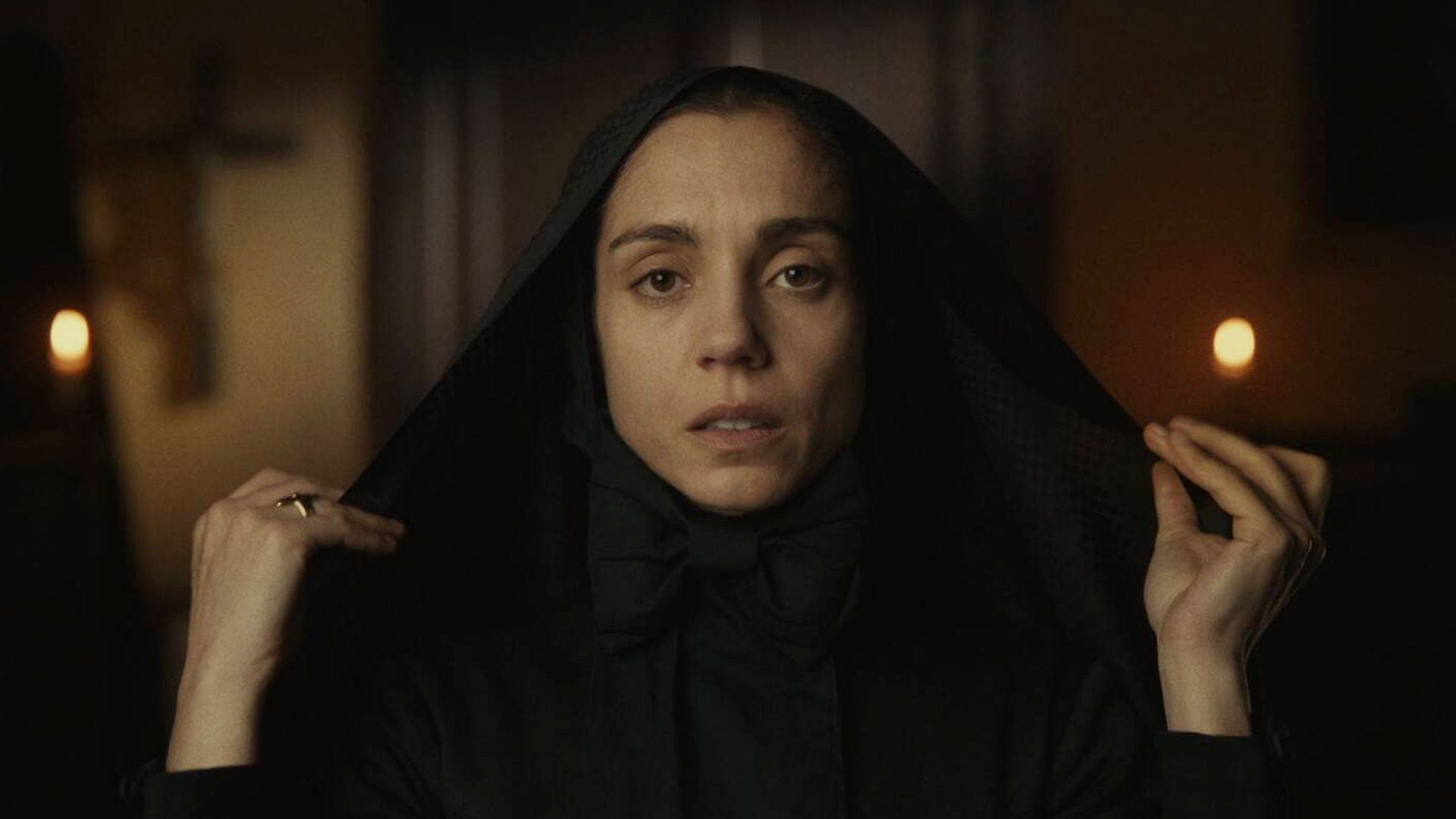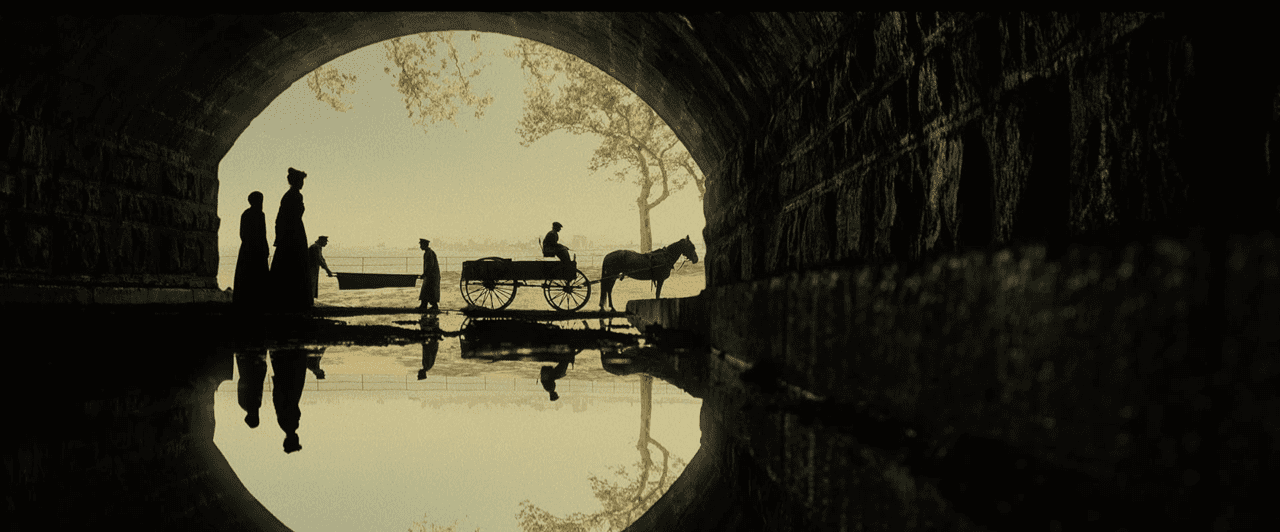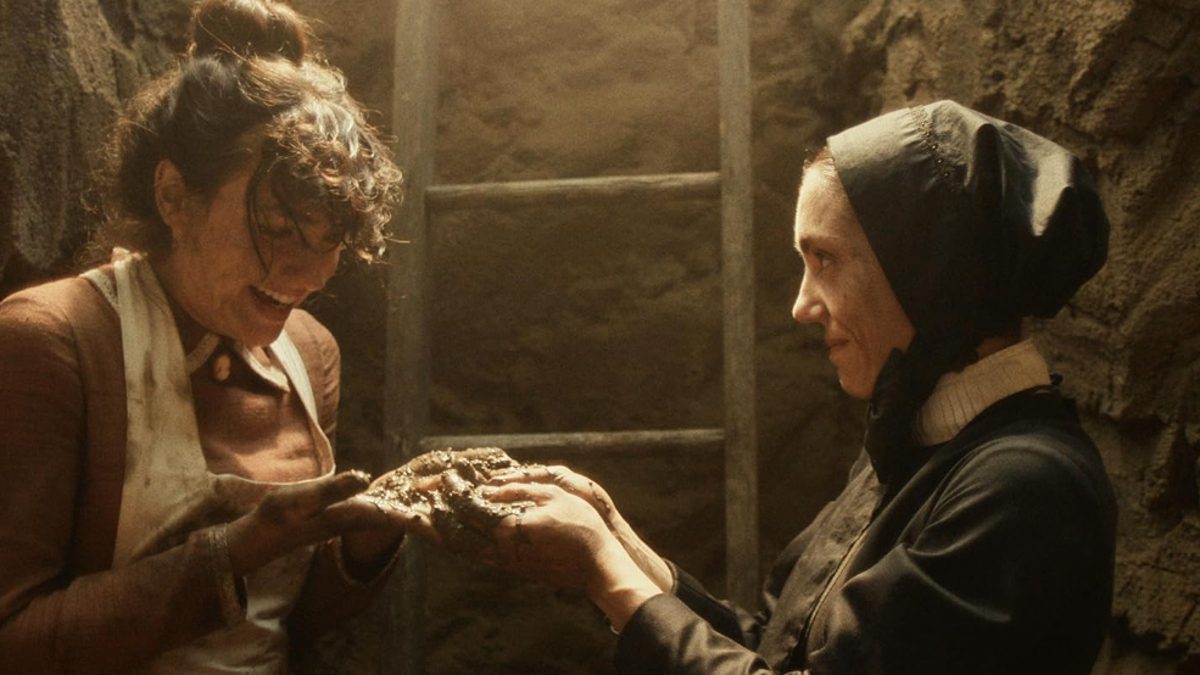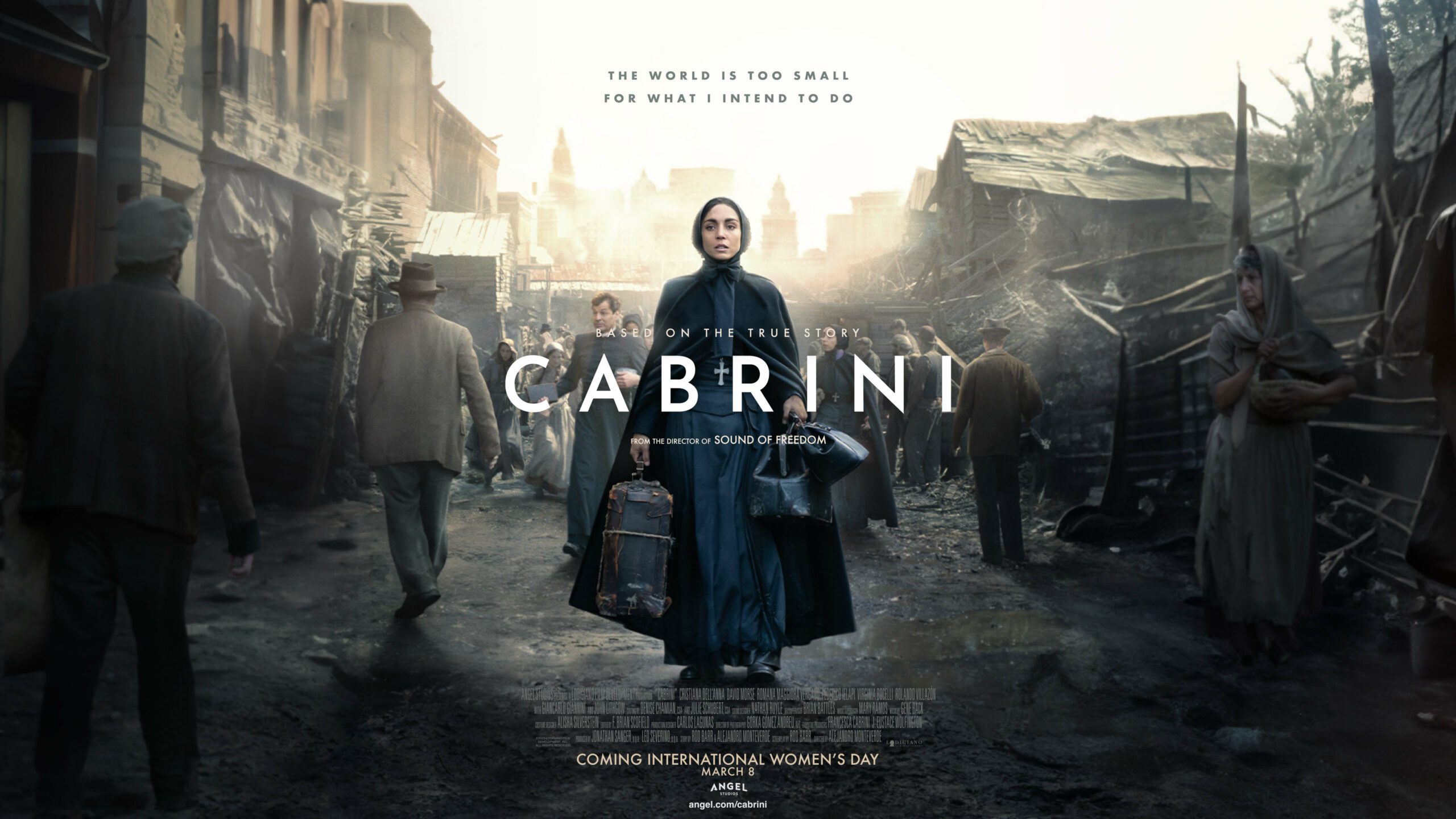REVIEW: Cabrini (2024)
Cabrini, released March eighth of this year by Angel Studios, tells the incredible true story of Mother Francesca Cabrini, who, when arriving in New York in 1889, is met with disease, crime, and orphaned children. She embarks on a daring mission to convince the mayor of New York to secure housing and healthcare for those in dire need.
The film opens with a young boy, Paolo, who is desperately attempting to find a hospital that will take in his deathly ill mother. He is turned away simply for being Italian, for at the time, Italians were considered “dirty” and “uncivilized,” among the “kinder” prejudices against them. I could not believe how anyone could turn away a distressed child as if he were a pestering fly. Upon his mother’s death from typhus, Paolo meets an older boy, Enzo, who takes him into the sewers, where many other orphaned children reside.
Mother Francesca Cabrini (Christiana Dell’Anna), a nun suffering from lung disease, visits the Vatican several times to gain approval for her missionary order to build an orphanage in China. After being turned away, she insists on having an audience with Pope Leo XIII (Giancarlo Giannini). The Pope notes that this is something no woman has ever undertaken but allows her to take her missionary work to New York. Throughout the film, Mother Cabrini has visions of her time as a child sitting beside a river, where she would send off paper boats, imagining setting sail on missions around the world, spreading hope to those starved for it.

Upon arriving at the infamous slums of “Five Points,” she is met with utter squalor. Cabrini and her band of Sisters find a temporary place to sleep from a bitter and battered young prostitute named Vittoria (Romana Maggiora Veigano), who warns them to barricade the door to prevent the horrid—which, honestly, feels an understatement when describing the character—proprietor should he discover them.
From here on, the film follows the ups and downs of running the new orphanage. Cabrini soon discovers the sewers in which many of the children go to live—or die—in filth and total poverty. Many people tell Cabrini she is “not where she belongs,” which only makes her more determined to accomplish her goals despite her deteriorating condition. She and Vittoria form a great bond and remain close, like mother and daughter; she also strikes up a friendship with the only doctor who will treat Italians and the like, Dr. Murphy, a good-natured and kind Irishman who can speak fluent Italian. I very much loved this character; he proved to be one of Cabrini’s truest friends, believing what she so desired to do was possible, especially with someone as ambitious as she. Even the archbishop, who at first begrudgingly allows her some funds, turns into a decent, honorable man when he finally sees the good in what Cabrini wishes to do. Mayor Gould (John Lithgow) is the main force behind preventing Cabrini from attaining any suitable property to house the children. Lithgow gives a fantastic performance, causing you to despise his character for his deep prejudices and the lengths to which he’ll go to deter Cabrini.

Cabrini and her Sisters bring many children to the orphanage, for there is no shortage of them in New York, and they soon have to find a larger building. This proves very difficult, for Italian immigrants are forbidden from acquiring any money from native-born Americans, who, at the time, were far better off than the former. It was unfortunately not uncommon for such preconceptions to be rampant in the late nineteenth to early twentieth centuries with the rise of the eugenics movement in both Europe and the United States. There was also a significant amount of prejudice against the Irish and Pols, who were thought of as lesser humans and paid a pittance for the hard labor they performed.

It should also be noted that despite this film’s religious theme, it is not so deeply ingrained that it will alienate a wide audience. For anyone who is also Catholic, such as myself—or, rather, raised that way—Cabrini definitely touches on many subjects that hit close to home. Learning the history of an actual saint was both inspiring and humbling, making you appreciate the work of one person (with great help, of course) changing the course of so many lives for the betterment of the world. The rawness of truth about the time period also helps pull you further in, showing how there was a definite boundary between the sexes at the time, particularly in what actions were acceptable for women. This is done very well, in the most genuine way possible, without any “message,” hidden or blatant. One scene had me in tears, after Cabrini goes to a New York Times journalist to unveil the horrors of Five Points, stating how even rats lead better lives than these children. This gains the great sympathy of the public, who, in turn, donate large sums to help further the cause of making living conditions more bearable.
The acting from the entire cast, even the kids, is phenomenal, and the scenes are gripping. There were at least four moments when I had tears were running down my cheeks. The characters are very well-written, and Christiana Dell’Anna’s performance is outstanding, making you truly root for her success. Young Romana Maggiora Veigano’s character is also stellar, showing how even someone of her status could be redeemed in the eyes of God and how much she admires Cabrini’s tenacity, which, in turn, inspires her.

Overall, Cabrini is a beautifully written, well-produced movie that keeps true to the story this first American Patron Saint. I highly recommend that anyone who is interested see the film if they have not, and hope that it will move your soul as much as it did mine. Bravo to Angel Studios for making another fantastic film, which, if this were done by a major studio, would certainly be headed for an Oscar.
Cabrini (2024)
Plot - 10
Acting - 10
Direction/Editing - 10
Music/Sound - 10
Drama - 10
10
Outstanding
Cabrini is the most moving and powerful film I have seen this year. I wept many times throughout and hoped beyond hope that the characters attained their goals. Highly recommend to anyone interested.
Comments (4)


November 13 is the Feast Day of Saint Cabrini. All the saints get feast days.
I wanna see this so bad but sadly no theater around me plays it.

Yeah, I’m having that problem with “The Chosen” around here. Sound of Freedom came here though, so I’m hoping this one is on the same rotation.








I had issues with it. That being said, I may see this movie again, and it may end up being a Classic film.
We celebrate St. Patrick’s day, but after seeing this, it’s a shame we do not celebrate a St. Cabrini day.
Growing up, I didn’t know who she was and did not even know her name. What she accomplished with her Order of Nuns was incredible.